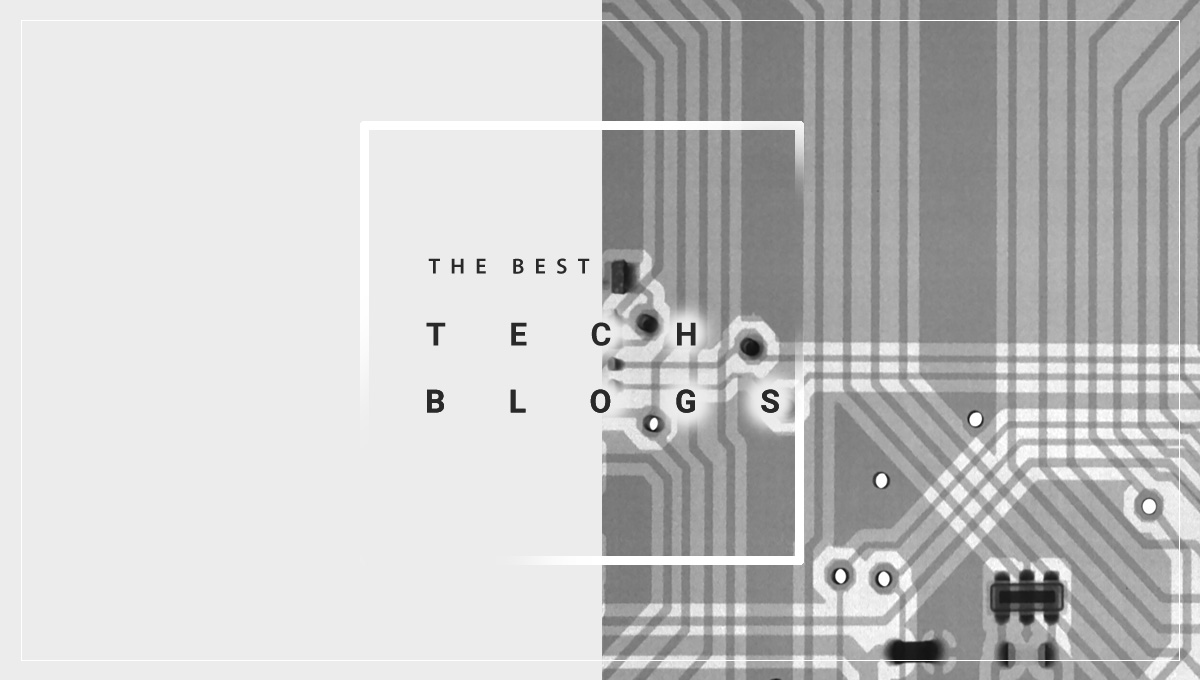What Makes the Best tech blog Stand Out Among Tech Fanatics and Experts
What Makes the Best tech blog Stand Out Among Tech Fanatics and Experts
Blog Article
Exactly How Blockchain Technology Is Revolutionizing Data Security
Blockchain modern technology is basically changing the landscape of data safety by presenting a decentralized framework that guarantees improved openness and strength. Unlike conventional systems, which depend on centralized data databases, blockchain disperses information throughout a network, lessening vulnerabilities and single factors of failure. The use of sophisticated cryptographic techniques makes certain that information stays tamper-proof, fostering trust fund among stakeholders and individuals.
The Basics of Blockchain
Blockchain innovation, a revolutionary concept in electronic data management, basically changes just how details is saved and safeguarded. At its core, a blockchain is a distributed journal that tapes transactions throughout a network of computers, making certain openness and immutability.
Secret to understanding blockchain is the hashing process, which encrypts purchase data right into an unique alphanumeric code. This cryptographic function makes certain that any type of alteration in the purchase data leads to a totally different hash, thus guarding versus meddling. The agreement device, another essential element, verifies and verifies new transactions via a network of nodes, thereby removing the requirement for a centralized authority.
In addition, blockchain's append-only structure guarantees that information, when added, can not be removed or modified. This characteristic assurances a long-term and verifiable record of transactions, fostering depend on among individuals. Therefore, blockchain provides a robust framework for information integrity, providing markets a reliable approach for monitoring and handling digital details in a safe and secure, clear manner.
Decentralization and Safety
Decentralization, a core principle of blockchain technology, dramatically boosts information safety by dispersing control across a network as opposed to counting on a particular, centralized entity. This distribution alleviates the threat of single points of failure, which prevail in standard central systems. By dispersing information across countless nodes, blockchain makes sure that even if one node is jeopardized, the entire network continues to be safe and secure. This redundancy not just strengthens the honesty of the data yet additionally enhances its resilience to cyberattacks and system failings.

Moreover, decentralization empowers customers with better control over their data. Each individual in the network has accessibility to the entire blockchain, allowing them to verify and examine transactions separately. This openness cultivates trust amongst customers, as they do not need to rely upon a central authority to make sure data stability. In general, decentralization contributes in improving information protection in blockchain networks.

Cryptographic Methods
At the heart of blockchain modern technology, cryptographic methods play a critical role in protecting data, guaranteeing both discretion and honesty. Cryptography in blockchain utilizes a mix of symmetrical and asymmetric formulas to secure data, making it available just to accredited parties.
Hash functions are an additional crucial component, transforming input data into a fixed-size string of characters, successfully developing a special digital finger print for each block. This makes certain that any type of effort to modify the data will certainly result in a totally different hash, thus preserving the immutability of the blockchain. Furthermore, digital signatures confirm the authenticity and honesty of deals, providing a layer of non-repudiation.
The decentralized nature of blockchain, combined with durable cryptographic strategies, gets rid of the need for intermediaries, minimizing possible susceptabilities. As blockchain technology advances, developments in cryptography such as zero-knowledge proofs and homomorphic file encryption proceed to enhance safety and security steps, better strengthening information defense in this cutting edge digital ledger system.
Use Cases Throughout Industries

In the medical care market, blockchain ensures the secure storage and sharing of patient documents, promoting interoperability while safeguarding delicate information from unauthorized gain access to. This technology empowers people with control over their medical background and helps with seamless coordination amongst doctor.
Supply chain administration advantages substantially from blockchain's unalterable ledger, which ensures traceability and credibility of products from origin to consumer. By boosting openness, blockchain helps reduce issues such as counterfeiting and unethical sourcing.
Additionally, blockchain's decentralized nature is improving the energy field by allowing peer-to-peer energy trading, where consumers can purchase and market excess renewable resource directly. This fosters an extra sustainable and reliable power community.
In the world of copyright, blockchain offers a tamper-proof system for developers to sign up and protect their works, making certain rightful acknowledgment and reasonable settlement. These diverse usage instances underscore blockchain's role as a critical pressure in redefining data security throughout sectors.
Future of Information Defense
As we aim to the future of information protection, blockchain modern technology is positioned to play an essential function in guarding electronic information. With its decentralized and immutable characteristics, blockchain offers a durable structure for protecting delicate information against unauthorized access and cyber hazards. This technology makes certain that as soon as data is videotaped, it is nearly difficult to modify without detection, therefore giving a significant advantage over standard data storage space methods.
The combination of blockchain with other advanced innovations, such as expert system and the Internet of Things (IoT), is anticipated to boost data defense methods click reference better. By leveraging clever contracts, companies can automate and apply protection procedures, decreasing human error and increasing efficiency. In addition, blockchain's capability to offer transparent and deducible deals will certainly bolster count on and liability in data administration practices.
As regulative landscapes evolve, blockchain's compliance-friendly nature will certainly come to be significantly appropriate. It can assist organizations fulfill strict data security laws, such as the General Information Defense Policy (GDPR) and the California Consumer Privacy Act (CCPA), by offering verifiable documents of data processing activities. Ultimately, blockchain's special features setting it as a transformative device in the continuous pursuit to safeguard the digital globe against ever-evolving cyber hazards.
Verdict
Blockchain innovation stands for a paradigm change in data protection by leveraging decentralization and cryptographic techniques to enhance transparency, trust, and data honesty. Its capability to remove single points of failing and employ agreement mechanisms considerably minimizes the risk of fraud and cyberattacks. This ingenious framework not only encourages customers with better control over their data yet also aligns with regulatory conformity. As cyber hazards evolve, blockchain becomes a vital device for robust data security across different industries.
Blockchain modern technology is basically changing the landscape of data safety and security by introducing a decentralized framework that assures improved transparency and resilience. Unlike traditional systems, which count on central data databases, blockchain distributes data across a network, decreasing susceptabilities and solitary points of failure.Decentralization, a core principle of blockchain innovation, considerably boosts data safety and security by dispersing control throughout a network rather than counting on a particular, centralized entity.At the heart of blockchain technology, cryptographic strategies play a crucial role in securing data, guaranteeing both confidentiality and stability.Blockchain innovation represents a standard shift in data safety by leveraging decentralization and cryptographic strategies to enhance openness, depend on, and data integrity.
Report this page